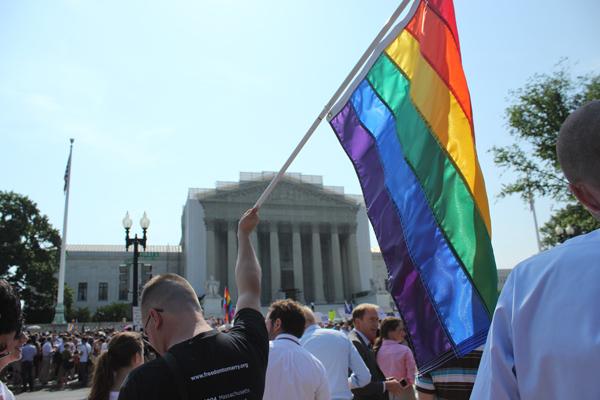Columbia, Mississippi is a small rural town most known as the home of Walter Payton, NFL player for the Chicago Bears. It is also my home — the place where I was born and raised.
On January 1, 1992, Jesus People Against Pollution was founded in Columbia. Residents had discovered that the town had been heavily polluted from the Newsom Brothers/Old Reichhold Chemical Company facility, now closed but still registering high levels of hazardous waste — what the EPA calls a “Superfund site.”
In March 1977, the plant exploded and wrecked the facility and surrounding community. The Old Reichhold Chemical Company abandoned their facility and hired an inexperienced contractor to dispose of the remaining toxins left on the site.
Sarah Decareaux was lying on the cold, concrete floor of a barn.
She closed her eyes, curled her knees into her chest, and told herself that what was happening wasn’t real.
She felt claustrophobic. She was having trouble breathing. Her vision tunneled, the same way it had when she’d been in labor. She could see only a few feet in front of her.
The legal battle over same-sex marriage has shifted from the Supreme Court to state capitals and lower courts as supporters seek to build on their recent victories and opponents hope to thwart that progress.
Armed with Justice Anthony Kennedy’s decision striking down the Defense of Marriage Act, lawyers representing same-sex couples filed a lawsuit in Pennsylvania on Tuesday, and vowed to follow with others in North Carolina and Virginia.
Those cases will be added to at least 11 pending from New Jersey to Hawaii.
The Navy did what some may consider "the unthinkable" and landed a jet size drone off the coast of Virginia yesterday. Following the drones successful landing, the Navy now has the opportunity to launch aircrafts from undisclosed areas throughout other countries. Christian Science Monitor reports:
The landing of the X-47B experimental aircraft means the Navy can move forward with its plans to develop another unmanned aircraft that will join the fleet alongside traditional airplanes to provide around-the-clock surveillance while also possessing a strike capability. It also would pave the way for the U.S.to launch unmanned aircraft without the need to obtain permission from other countries to use their bases.
Read more here.
In the next few weeks President Barack Obama is expected to visit key states throughout the U.S. Making it his mission to explain the economic values immigrants would have on the U.S. if in fact the bill were to pass, democratic officials believe Obama will use his time to highlight financial gains that would come from the passing of immigration reform.TIME reports:
It is, allies concede, a telling sign that the bill’s fortunes are foundering in the fractious Republican-controlled House — and a symbol of Obama’s vanishing clout just six months into his second term. Democratic officials expect that over the coming weeks Obama will travel across the U.S., likely to strategically important states like Nevada, North Carolina and Texas, to highlight the economic benefits of the law. Obama summoned Democratic Senator Chuck Schumer and Republican Senator John McCain to the White House on Thursday to discuss ways to advance the bill in the House. The West Wing is waiting on House Republicans to choose a path on immigration reform before finalizing its strategy, but aides plan a markedly different role for the President over the coming months.
Read more here.
Once we have decided to follow Jesus, we cannot help but live out our personal beliefs in public ways. The demands of the Gospel refuse us the option of a purely inward spirituality.
While there are times when those in power listen to the guidance of moral and religious leaders, far too often we’re asked to be prophets. In the face of opposition, we pick up our crosses and lift up our voices on behalf of the disadvantaged.
In North Carolina, pastors and civil rights leaders, along with thousands of others, have been living out their personal faith in a very public way. Since late April, dozens of faith leaders and hundreds of others have been arrested at the state capitol as part of an ongoing protest call “Moral Mondays.” What would motivate these leaders to take such a strong stand at such a personal cost?
Nineteen former students of a high school run by Yeshiva University, the flagship school of Orthodox Judaism, have filed a $380 million federal lawsuit over what they claim are hundreds of acts of abuse by two rabbis in the 1970s and 1980s.
The lawsuit, which was filed Monday in U.S. District Court in White Plains, N.Y., follows the resignation of Rabbi Norman Lamm, the chancellor and head of the Yeshiva seminary. In his resignation letter, the 85-year-old Lamm, who was president of the university when the abuse took place, said he was doing penance for mishandling allegations against staff members.
The 148-page lawsuit accused Lamm and various other Yeshiva officials, trustees, board members, and faculty of a “massive cover-up of the sexual abuse of students” at a university-run high school.
Leading secularists are calling on nonreligious parents to fight a government effort that would allow the Church of England to run thousands of state schools.
The schools, or academies, would be privately funded, quasi-independent and accountable to the church for their curricula, organization, admission policies, and teachers’ pay and conditions.
As of July, there were 3,049 such academies operating in England, many financed by businessmen, finance companies, supermarkets, football clubs, and a growing number of faith-based organizations including the Roman Catholic Church, the Methodist Church and the largest of all — the Church of England.





